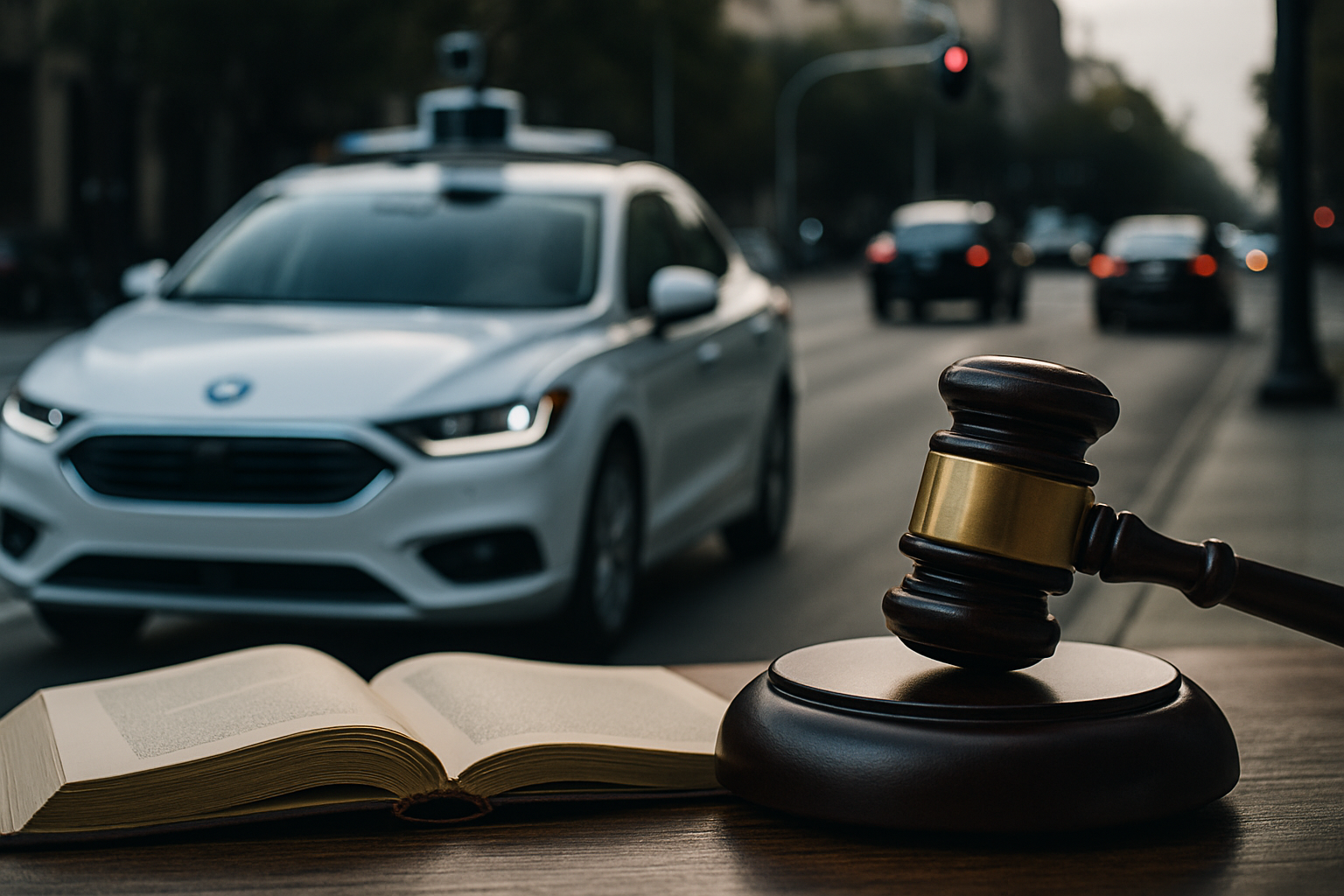Legal Challenges in Regulating Autonomous Vehicles
Introduction: The rise of autonomous vehicles presents a complex web of legal and regulatory challenges. As these self-driving cars become increasingly prevalent on our roads, lawmakers and legal experts grapple with unprecedented questions of liability, safety standards, and ethical decision-making. This article delves into the intricate legal landscape surrounding autonomous vehicles and explores the innovative approaches being developed to address these emerging issues.

Liability in the Age of Self-Driving Cars
One of the most pressing legal issues surrounding autonomous vehicles is determining liability in the event of an accident. Traditional notions of driver responsibility are upended when a computer is at the wheel. Legal experts are considering various models, including shifting liability to manufacturers or creating a no-fault system specifically for autonomous vehicles. These discussions have far-reaching implications for insurance companies, car makers, and consumers alike.
Data Privacy and Cybersecurity Concerns
Autonomous vehicles generate and process vast amounts of data, raising significant privacy and security concerns. Legal frameworks must address questions of data ownership, storage, and protection. Additionally, the potential for hacking and remote control of vehicles presents new challenges for cybersecurity law. Legislators are working to create robust legal protections that balance innovation with individual privacy rights and public safety.
Ethical Dilemmas and Algorithmic Decision-Making
The programming of autonomous vehicles involves complex ethical considerations that have legal ramifications. For instance, how should a vehicle be programmed to respond in a situation where harm is inevitable but can be minimized? These ethical dilemmas are being translated into legal guidelines and standards for manufacturers. The challenge lies in creating a legal framework that can account for the nuanced decision-making required in real-world driving scenarios.
International Harmonization of Autonomous Vehicle Laws
As autonomous vehicles cross borders, the need for international legal harmonization becomes apparent. Efforts are underway to develop global standards for autonomous vehicle technology and operation. Organizations like the United Nations Economic Commission for Europe are working on international regulations, but challenges remain in aligning diverse legal systems and cultural attitudes towards automotive technology.
The Role of Intellectual Property Law
The development of autonomous vehicle technology has sparked a surge in patent filings and intellectual property disputes. Legal experts are grappling with questions of patent eligibility for AI-driven innovations and the potential for patent thickets to hinder industry progress. The intersection of intellectual property law and autonomous vehicle technology is shaping the competitive landscape of the automotive industry.
Adapting Traffic Laws for Autonomous Vehicles
Existing traffic laws were written with human drivers in mind, and many are becoming obsolete in the face of autonomous technology. Lawmakers are working to update traffic codes to accommodate self-driving cars, addressing issues such as the definition of a driver, rules for vehicle-to-vehicle communication, and the adaptation of road signs and signals for machine reading.
The Impact on Employment Law
The widespread adoption of autonomous vehicles is expected to have significant implications for employment law, particularly in the transportation sector. Legal frameworks are being developed to address potential job displacement, retraining programs, and the changing nature of work in industries affected by autonomous technology. These legal considerations extend beyond drivers to include mechanics, insurance adjusters, and other related professions.
In conclusion, the legal challenges presented by autonomous vehicles are as complex as they are numerous. As technology continues to advance, legal systems around the world are striving to keep pace, balancing innovation with public safety and individual rights. The evolving legal landscape surrounding autonomous vehicles will play a crucial role in shaping the future of transportation and urban planning. As we navigate this new terrain, collaboration between lawmakers, technologists, and ethicists will be essential in creating a robust and adaptable legal framework for the age of autonomous vehicles.






